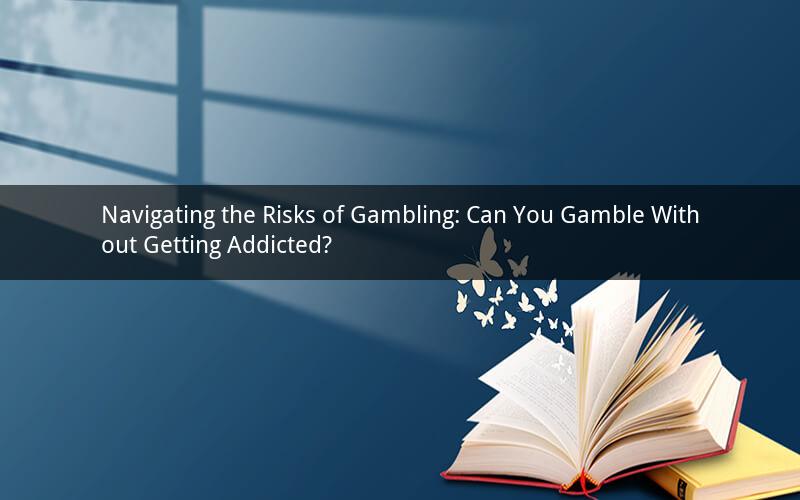
Gaming, whether it's in the form of casino games, sports betting, or online slots, has become an integral part of modern entertainment. While many people enjoy gambling as a form of leisure, the potential for addiction is a significant concern. This article delves into the question: Can you gamble without getting addicted? We'll explore the risks, signs of addiction, and strategies to maintain a healthy relationship with gambling.
The Allure of Gambling
Gambling has always held a certain allure, captivating individuals with the promise of instant wealth and the thrill of taking risks. The allure is further enhanced by the sophisticated marketing strategies employed by gambling companies, which often target young and impressionable individuals. However, the question remains: is it possible to enjoy gambling without succumbing to addiction?
Understanding the Risks
The potential for addiction is a major risk associated with gambling. According to the National Council on Problem Gambling, approximately 2-3% of the adult population in the United States has a gambling disorder. This disorder can lead to significant financial, social, and emotional consequences, including job loss, relationship problems, and even suicidal thoughts.
Signs of Gambling Addiction
Identifying the signs of gambling addiction is crucial in determining whether someone is at risk. Common signs include:
1. Preoccupation with gambling: Constantly thinking about gambling, planning how to win, or worrying about losing.
2. Increasing stakes: Needing to bet more money to get the same thrill.
3. Loss of control: Inability to stop gambling despite attempts to do so.
4. Financial problems: Borrowing money, selling possessions, or using credit cards to fund gambling.
5. Neglecting responsibilities: Ignoring work, family, and personal obligations due to gambling.
Strategies to Maintain a Healthy Relationship with Gambling
While it's challenging to completely avoid the risk of addiction, there are several strategies that can help maintain a healthy relationship with gambling:
1. Set a budget: Determine how much money you're willing to spend on gambling and stick to it.
2. Time management: Limit the amount of time spent gambling to avoid becoming overly focused on it.
3. Educate yourself: Learn about the odds and risks associated with different types of gambling.
4. Seek support: Join a gambling support group or seek help from a mental health professional if you suspect you have a problem.
5. Avoid triggers: Stay away from places or situations that may trigger your gambling urge.
Can You Gamble Without Getting Addicted?
The answer to this question is nuanced. While it's possible to gamble without developing an addiction, it requires discipline, self-awareness, and a willingness to set boundaries. The key is to approach gambling as a form of entertainment rather than a means to make money. By following the strategies outlined above and being mindful of your behavior, you can reduce the risk of developing a gambling addiction.
Frequently Asked Questions
1. Q: What are the signs of a gambling addiction?
A: Signs of a gambling addiction include preoccupation with gambling, increasing stakes, loss of control, financial problems, and neglecting responsibilities.
2. Q: How can I set a budget for gambling?
A: Set a budget by determining how much money you're willing to spend on gambling and stick to it. Consider using a separate bank account or credit card for gambling expenses to keep track of your spending.
3. Q: Is it possible to completely avoid the risk of gambling addiction?
A: While it's challenging to completely avoid the risk of addiction, it's possible to reduce the risk by being disciplined, self-aware, and setting boundaries.
4. Q: How can I find a gambling support group?
A: You can find a gambling support group by searching online or contacting a local mental health provider. Many communities offer support groups for individuals struggling with gambling addiction.
5. Q: What should I do if I suspect I have a gambling addiction?
A: If you suspect you have a gambling addiction, seek help from a mental health professional or join a gambling support group. It's important to address the issue before it worsens.